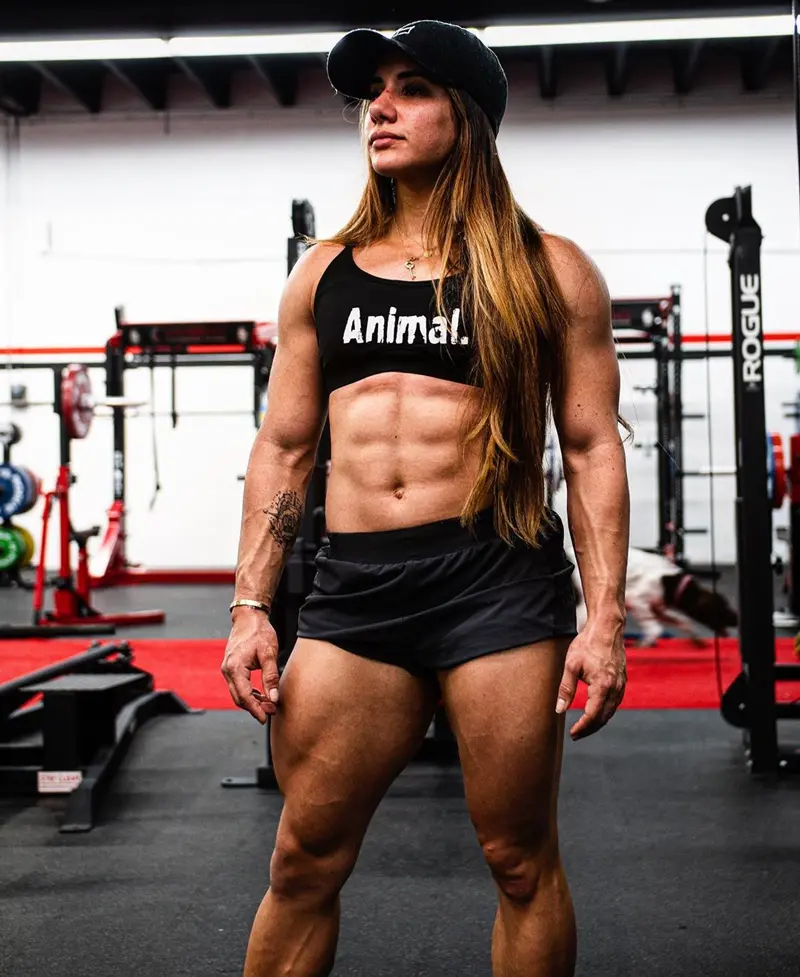She recently set an unofficial world record in May at the Arnold Classic with an insane 495lb squat at a 123lb bodyweight… Stefi Cohen is the number two ranked female powerlifter at 123 pounds currently holding the deadlift and previously the totals record (22x all-time world records), so it’s safe to say she’s a beast.
Cohen is also a Doctor of Physical Therapy, an Exercise Physiologist and she’s the co-owner of Hybrid Performance Method.
Well, who better to learn improving strength performance from than one of the best in the world. Stefi Cohen recently posted a video about the most effective ways to gain strength; which is very detailed and breaks down information related to physics and body mechanics for lifting.
Cohen explained how the muscles work to create force production and velocity where it relates to contraction and elongation when placed under a resistance load.
She also talked about the SAID (Specific Adaptation To Imposed Demands) principle, for instance, if you want a heavier squat than it’s obvious we need to spend more time squatting heavier than lighter to create the strength adaptation.

Watch the video below for a more detailed description of each tip given by Stefi Cohen but here a few points…
Strength Adaptation:
- Raw ingredients of improving strength are lateral force transmission, prime movers, technique, and strength & hypertrophy.
Training Parameters:
- Heavy weights lead to more strength gains, and although lighter weight can still increase strength, the former (heavy training) should be the focus for this purpose.
- Adaptation overlapping can occur with both force and speed training but interference isn’t significant for most lifters who are not training to be competitive.
- Adjust volume to ensure you’re continually progressing as too little or too much is not ideal.
- Don’t worry so much about frequency as it’s a very individual aspect and can be manipulated as needed but a focus on volume and intensity are most important.
- Specificity is important but varying your training is also important for progression. So incorporate speed and technical workouts which can help to train at higher percentages. But this workload can also be protective against injuries.
- Workout quality & recovery are essential components in increasing strength to ensure optimal performance and adequate recovery.
After the tips, Stefi Cohen explained how there are many variables and paths to increasing your strength and that many of the principles are broad as a result. Learning how to continually progress in your strength training journey is a lengthy process that requires trial and error since everyone is different, and there are no shortcuts even with the best possible advice from one of the best powerlifters in the world.
Here’s the full video…
Tip: If you're signed in to Google, tap Follow.









